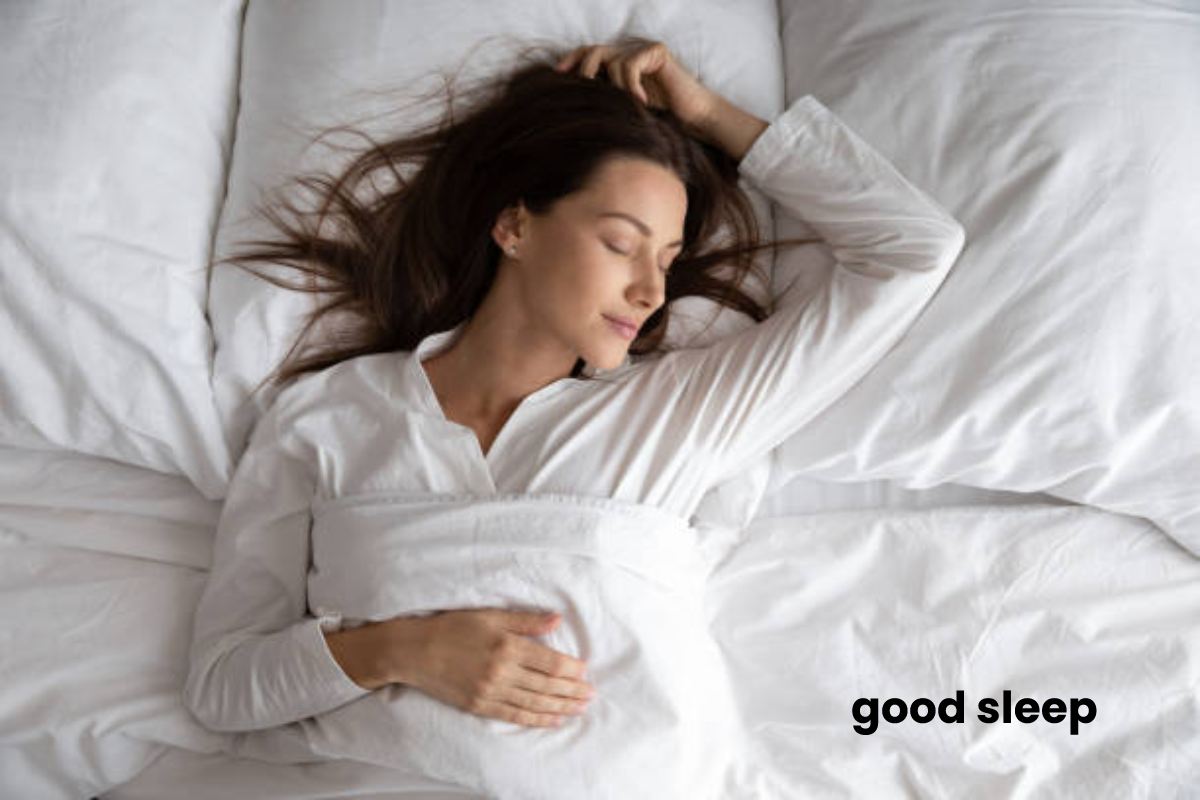Fatigue makes us look five years older than we should. In Germany, this is an issue, especially for women. According to a study by the Robert Koch Institute, around 50 per cent of adult women in Germany only sleep six or fewer hours a night.
That’s not enough for physical and mental recovery, let alone the skin’s repair work at night—lack of sleep links to low collagen production and skin ageing. Chronic lack of sleep is a significant stress factor for the body – and also significantly increases the need for vitamins and minerals.
Table of Contents
What Happens In The Body When There Is A Lack Of Sleep?
- Metabolism is becoming less royal, and blood circulation is becoming poorer. Dear friends, the skin’s wear element is becoming less. Cellular waste products cannot be eliminated immediately. The skin becomes more sensitive to the appearance of dark forms.
- Cortisol and adrenaline hormones cause stress: Cortisol and adrenal hormones are stress hormones. The higher stars of both these planets can put pressure on the planetary system.
- Inflammation of the skin, outbreak of rosacea and psoriasis, and aging of the skin increases.
- Endotoxin is adsorbed – Endotoxin is a toxic substance produced by the bacteria of the intestine that can cause significant metabolic effects in the penis. They can destroy the digestive system and can cause swelling and mucus.
How Many Hours Should You Sleep
In between 18 and 64, you need seven to nine hours of sleep a night. Teens should have eight to 10 hours, while seniors only need seven to eight hours.
The best time to go to bed is between 8 pm and midnight. If you’re not getting enough sleep, you might want to see if you can shift your priorities to better skin and health. Because restful sleep at night ensures better mood and cognitive function, improved immunity, better emotional and physical resilience. A higher pain threshold, and better hormonal function. To name a few.
Your Sleep Needs
Choose a bedtime that is comfortable for you to fall asleep and is at least 8 hours before you usually wake up. Keep this bedtime for a week and note when you wake up. You can wake up very early for a few days because you are used to it, but this will regulate itself quickly.
If you need an alarm to wake you up, are always very tired when you wake up or are exhausted during the day, 8 hours of sleep is not enough. Then bedtime has to be brought forward half an hour – until you wake up refreshed without an alarm clock. It is your personal, daily sleep requirement.
The best defence against stressors – is to get deep and restful beauty sleep every night. These tips will help:
1. Maintaining Same Bedtime , Even On Weekends
It isn’t always easy unless you lead a life of solitude. But it has been scientifically proven that regularity is super essential for the body. His recovery and thus his performance during the day depend on it. The better you adapt to your body and give it this regularity, the better the body can recover and regenerate.
2. Always Give The Body Sleep “en bloc”.
The worst for the body is the so-called “fragmented sheep”. It is the “stuttering sleep” that many women and men experience, for example, after the birth of a baby. Unless fragmented sleep is due to someone or something waking us up, we’re powerless. But an afternoon nap does not fully count towards the sleep account if you are sleepless at night. It’s not the same recovery effect you get from sleeping seven hours straight.
3. Make Up For Lost Sleep Immediately
Our bodies need one hour of sleep for every two hours awake. The ratio should always be 2:1. It also means that after 16 waking hours, we need rest! If we don’t respect that, we damage our body, become ill or become less efficient. According to the current state of science, it is not a good idea to drink sugar during the week. It is better to blink once daily, but not too long or too late. So upon the couch or a daybed in the office!
4. Avoid Screen time And Exercise Before Bed
Bright light blocks the release of melatonin, the hormone primarily responsible for initiating sleep. Electronic devices such as televisions and iPads also emit daylight spectrum light. So, being in opposite of a screen or under bright household lights inhibits melatonin release and sleep onset. If you’re a screen junkie, stop using it at least an hour before bed and switch to cosier lights in the rooms you’re using to give your body the right signals.
Exercise helps sleep better and more profoundly, but not if it is practised just before bedtime. Exercising later in the evening can release energy and affect sleep patterns and quality. It is, therefore, better to train in the early evening.
5Turn Off Interference
A study in the Journal of Experimental Psychology showed that writing down tasks that needed. The next day reduced stress and caused subjects to fall asleep faster. Therefore, take a worthwhile 5 minutes in the evening and write a to-do list before bed.
Are you sensitive to external stimuli? If so, wear earplugs and a sleep mask. The priority should be to have complete privacy throughout the night because sleep comes first.
Conclusion
How a Good Sleep Can Improve your skin – Sleep always plays a crucial role in one’s health. It maintains every detail of the body. The skin rests ultimately and improves in a particular manner.
According to the current state of science, it is not a good idea to drink sugar during the week. It is better to blink once daily, but not too long or too late.

